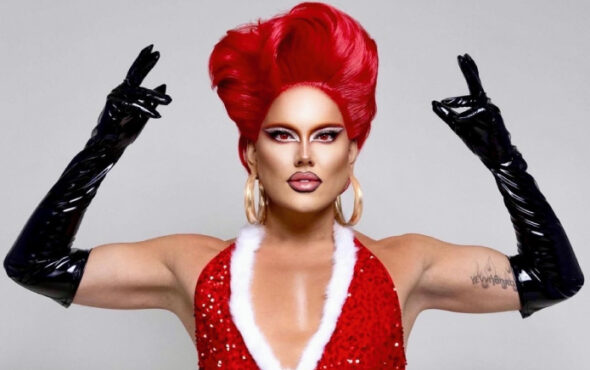
The orchestral vworping sound of the Doctor Who theme tune is one of the most recognisable across the UK (thank you Delia Darbyshire), and the show is currently one of the longest- running programmes on TV at the grand old age of 60. Inevitably, this means the show has gone through more than a few alterations over the years.
The development of its special effects, the introduction of many new and long-standing foes, rousing music to play behind one of The Doctor’s big speeches, amongst many others. The evolution of Doctor Who is a wonder to behold, and has left a sturdy mark on British culture.
The introduction of Yasmin Finney and Ncuti Gatwa to the world of Doctor Who has created palpable excitement among fans across the world, but also some anti-LGBT+ background noise, reviving a common complaint seen in recent years is that Doctor Who has gone ‘woke’.
Critics have decried the show as too progressive, declaring that it’s simply gone too far now, and grieving the old days where Doctor Who was ‘actually good’. And to this, I ask, when has Doctor Who not been progressive?
Television is more often than not a product of its time,and Doctor Who is no exception. Since its inception in 1963, Doctor Who has always been reflective of the age it was produced in. The first series, produced by Verity Lambert and frequently directed by Waris Hussein, featured the first appearance of the Daleks. Created in the wake of a world war, the authoritarian style of evil that the Daleks portrayed was heavily inspired by the Nazis, and the premise of ideological metaphor has often been used in order to show the perils of the absence of humanity in pure hate. Similarly in Robot, the uniformed Scientific Reform Society (or SRS) are an authoritarian group of intellectuals led by fearsome Hilda Winters with a desire for world domination that makes it hard for it not be seen as a twist on Nazism.
The rise of Doctor Who and the rise of feminism and women’s liberation were parallel, and as a product of its time, the series changed to fit the social climate. The introduction of companions like Sarah Jane Smith or fellow Time Lord Romana meant that female companions were no longer simply feeble damsels in distress, but inquisitive, headstrong and complex characters. The Doctor’s companions are, or become, his equal, with modern series of the show having entire narrative arcs dedicated to their exploration and development.
Doctor Who has frequently mixed subtle and overt forms of representation and social commentary across both classic and modern episodes. The subtextual gay relationship between Giuliano and his ‘companion’ Marco in the 1976 story Masque of Mandragora, allegories for Section 28 in 1988’s The Happiness Patrol, and the increasing number of explicitly LGBT+ characters as the show has shifted focus to headline queer representation.
Doctor Who’s ever-changing protagonist is someone who defies binary gender. Time Lords can regenerate from male to female-presenting, and in the words of the 14th incarnation: “The Doctor is male and female, and neither, and more.”
The same applies to their fluidity of The Doctor’s queerness. The Doctor impresses, amazes, and is never afraid of being just a little bit strange. They are forever the pacifist – one of The Doctor’s most defining traits. In the episode ‘A Town Called Mercy’, the show returns to a familiar topic – the ethics of war. Can a horrific act be justified if it saves the lives of many? In a story deeply reflective of Oppenheimer and the atomic bomb, the episode focuses on Dr Kahler-Jex, and his vengeful cyborg creation, the Gunslinger. The Gunslinger seeks a lethal revenge on Jex after being a subject of his inhumane experiments, attempting to atone as a surgeon in the town of Mercy. He justifies his actions as being a necessary evil, sacrificing few to save the many and stopping a civil war. It raises questions about the morality of war and retributive versus restorative justice, and how The Doctor approaches this.
In the same vein, a major thread running through the heart of the show is a distaste for the unfair or downright exploitative treatment of others. Among a horde of others, The Sun Makers, Bad Wolf, The Beast Below, Sleep No More and Daleks in Manhattan all serve as cautionary tales around capitalism and society, where real life often forms the basis for stories.
It could be said that the social commentary as of late has been somewhat heavy-handed, that to some the message may supersede the story instead of the reverse. But in the current climate, making a statement and having explicit representation is needed to reaffirm just what kind of show Doctor Who is.
In the face of rampant transphobia, having Finney’s trans character Rose be loved and respected by her family and help save the world to boot is a powerful thing. Doctor Who is a show that is very unapologetically itself. This is precisely how it has remained relatable to many, and the 60th anniversary episodes has served as a reminder to all of us that Doctor Who will never be cruel, cowardly or hateful – it will always be kind.
Zaynab volunteers as an ambassador for Just Like Us, the LGBTQIA+ young people’s charity. LGBT+ and aged 18 to 25? Sign up here!



